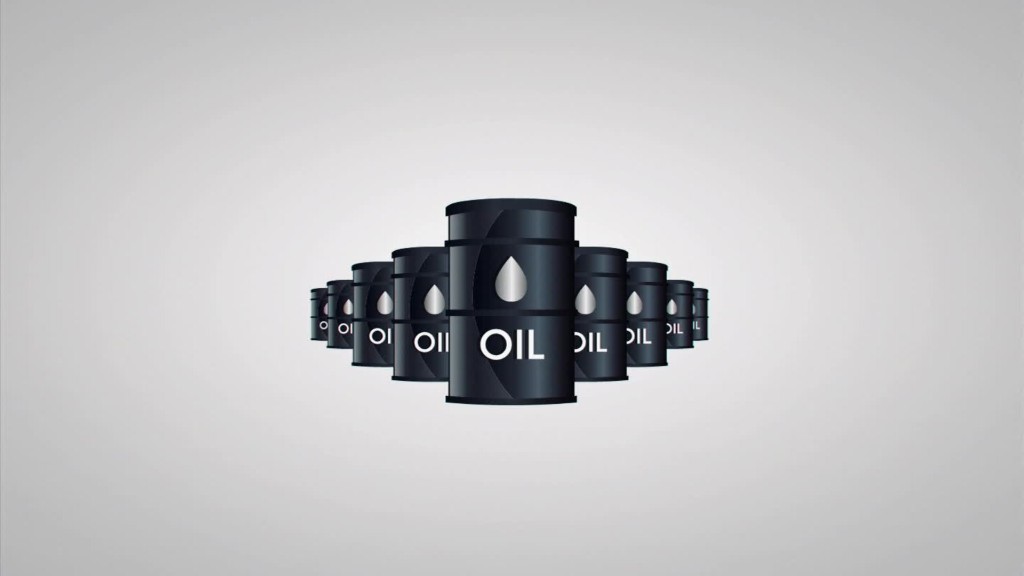
Extreme turbulence may be the new normal for the oil market.
That's the message from Citigroup, which on Tuesday became the latest oil bear to defect to the bullish camp. Edward Morse, Citi's commodities guru, believes oil prices could rise to $61 a barrel by next year because the epic supply glut may soon be over. That echoes a recent optimistic call from from Goldman Sachs.
But Morse also has a warning for investors: oil prices are likely to gyrate way more than they used to. Of late, it's not unusual to see oil prices move up or down by 3% to 4% on an intraday basis.
"The brave new world of petroleum promises to be volatile and the 'new normal' for oil makes stability elusive," the Citi strategist wrote in a research report.
Related: Oil prices rise to 7-month highs
Here are the four big reasons why more crazy swings in oil prices are likely:
1.) OPEC is no longer directing traffic: Saudi Arabia has forced OPEC to abandon its traditional role as the oil market's traffic cop. Traditionally, the oil cartel would ramp up production or dial it back to respond to shifts in supply and demand. Prices would respond accordingly.
But two years ago, Saudi Arabia launched a huge war for market share by continuing flat-out production despite a global supply glut. Other producers like Iran are also aggressively pumping away. Citi said all of this leaves OPEC slow or unwilling to adjust to imbalances in the future.
2.) America's wildcatters are in charge: OPEC taking a backseat means that U.S. shale oil producers have "assumed the mantle of market-balancer." That's a nice win for free market capitalism. But there isn't a single oil minister making decisions in the U.S.
Shale oil is produced by a vast group of independent companies, whose strategies are dictated by a variety of different market forces. Not all of them move in lock-step.
Citi warned that the recent rise in oil prices could trigger a "rash" of well completions in the U.S. and a return to $60 is likely to motivate drilling programs to resume.
"It looks more likely than not that this should put a cap on an inevitable price recovery and again drive prices down," Morse wrote.
3.) Chaos reigns in oil nations: The political and security situations are downright scary in many big oil producers like Libya, Iraq, Nigeria and Venezuela. For instance, militants recently launched attacks on oil facilities in Nigeria that have caused output in Africa's largest oil producer to tumble to a 20-year low, according to Capital Economics. And Venezuela has its own economic problems, where power cuts and shortage of basic foods has become rampant.
"Governance in petro-states are increasingly fragile giving rise to increasingly frequent supply disruptions," Morse wrote.
4.) Fast money on Wall Street: Citi said the biggest factor behind future volatility will be the increasingly-dominant role of lightning-fast computer-driven trading, which is notorious for contributing to big price swings in the stock market too.
Related: CNNMoney's Fear & Greed index
Some attribute this kind of trading to oil prices plummeting to $26 a barrel earlier this year on huge trading volume before skyrocketing back above $34 just two weeks later.
Morse said this issue has been fueled in part by regulation on banks that have had the unintentional consequence of reducing liquidity in the futures and options markets where oil prices trade.
All of this has the effect of "reinforcing fickle market sentiment and exacerbating price swings," Morse said.
--CNNMoney's Alanna Petroff contributed to this report


